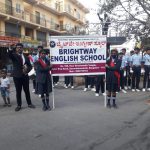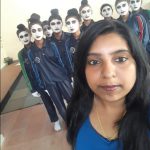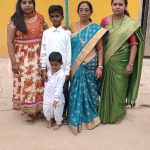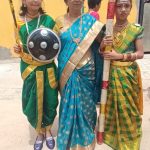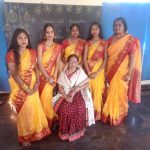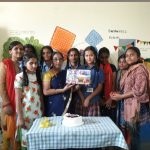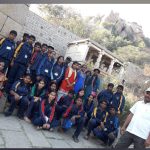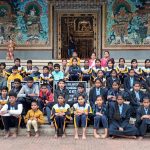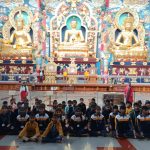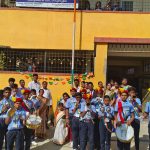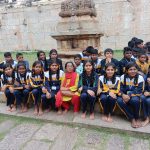
Best LKG Schools in Devarabisanahalli
Bright Way English School Teaching for LKG (Lower Kindergarten) typically focuses on introducing young children to foundational concepts in various subjects while also developing their cognitive, social, emotional, and motor skills. Here is a general outline of the teaching content for LKG:
Subjects:
Language (English, and possibly the local language):
- Introduction to alphabets (A-Z)
- Letter sounds
- Basic vocabulary (colors, shapes, animals, fruits, etc.)
- Simple words and sentences
- Rhymes and songs
- Listening and speaking skills development
Mathematics:
- Numbers 1-10 (recognition, counting, writing)
- Basic shapes (circle, square, triangle, rectangle)
- Colors and patterns
- Sorting and classifying objects
- Simple addition and subtraction (using objects, pictures, and stories)
- Introduction to basic concepts like big/small, more/less, tall/short
Environmental Studies:
- Introduction to the environment (home, school, neighborhood)
- Basic concepts of living and non-living things
- Seasons and weather
- Plants and animals
- Importance of cleanliness and hygiene
Earth and Environment:
- Exploring the environment and its elements (air, water, soil).
- Discussing changes in the weather and seasons.
- Introducing concepts of recycling and taking care of the environment.
Social Studies:
Self and Family:
- Identifying and naming family members and their roles.
- Discussing basic aspects of family life and routines.
- Understanding and expressing emotions and feelings.
Community:
- Learning about community helpers (doctor, teacher, police officer, firefighter, etc.).
- Understanding the roles of different community members.
- Discussing basic rules of safety at home and in the community.
Creative Arts:
Art and Craft:
- Engaging in various art activities using different materials (paint, crayons, clay, etc.).
- Exploring colors, shapes, and textures through art.
- Developing fine motor skills through cutting, pasting, and drawing.
Music and Movement:
- Singing songs and rhymes with actions and gestures.
- Moving to different rhythms and beats.
- Exploring musical instruments and sounds.
Physical Education:
Gross Motor Skills:
- Practicing coordination and balance through running, jumping, hopping, and skipping.
- Playing simple outdoor games that involve physical activity.
- Learning basic sports skills like throwing and catching.
Fine Motor Skills:
- Developing hand-eye coordination through activities like threading beads, lacing cards, and using puzzles.
- Improving pencil grip and control through drawing, tracing, and coloring.
- Using scissors to cut along lines and shapes.
Life Skills:
Personal Hygiene and Safety:
- Teaching proper handwashing techniques.
- Understanding and following basic hygiene practices (brushing teeth, covering mouth when coughing/sneezing).
- Identifying safe and unsafe objects and situations.
Social Skills:
- Promoting sharing, taking turns, and cooperating with peers.
- Encouraging polite language and greetings.
- Building confidence in speaking and expressing ideas in front of others.
Overall Goals:
Holistic Development:
- Fostering curiosity, creativity, and critical thinking.
- Building a strong foundation for future academic success.
- Promoting social and emotional development.
Preparation for Primary School:
- Developing language, literacy, and numeracy skills.
- Cultivating independence and confidence in learning.
Teaching Strategies:
Play-based Learning:
- Providing opportunities for exploration and discovery through play.
- Using games, toys, and manipulatives to teach concepts.
Hands-on Activities:
- Engaging children in sensory experiences and experiments.
- Encouraging interaction with real-life objects to understand concepts.
Storytelling and Discussions:
- Reading aloud and discussing stories to build language skills.
- Encouraging children to ask questions and express their thoughts.
Individual and Group Activities:
- Balancing activities that cater to individual learning styles.
- Promoting collaboration and teamwork through group projects and games.
Positive Reinforcement:
- Providing praise and encouragement for effort and achievements.
- Creating a supportive and nurturing learning environment.
By focusing on these areas and using appropriate teaching strategies, LKG educators help children develop the foundational skills they need for success in higher grades. The emphasis is on creating a positive and engaging learning environment where children can thrive and explore their interests.

